GERI 10th Anniversary Research Symposium highlights critical role of interdisciplinary collaboration amid evolving needs of older population
8 July 2025
Translational ageing research necessitates broad interdisciplinary collaboration among domain experts, researchers, implementers, and policymakers
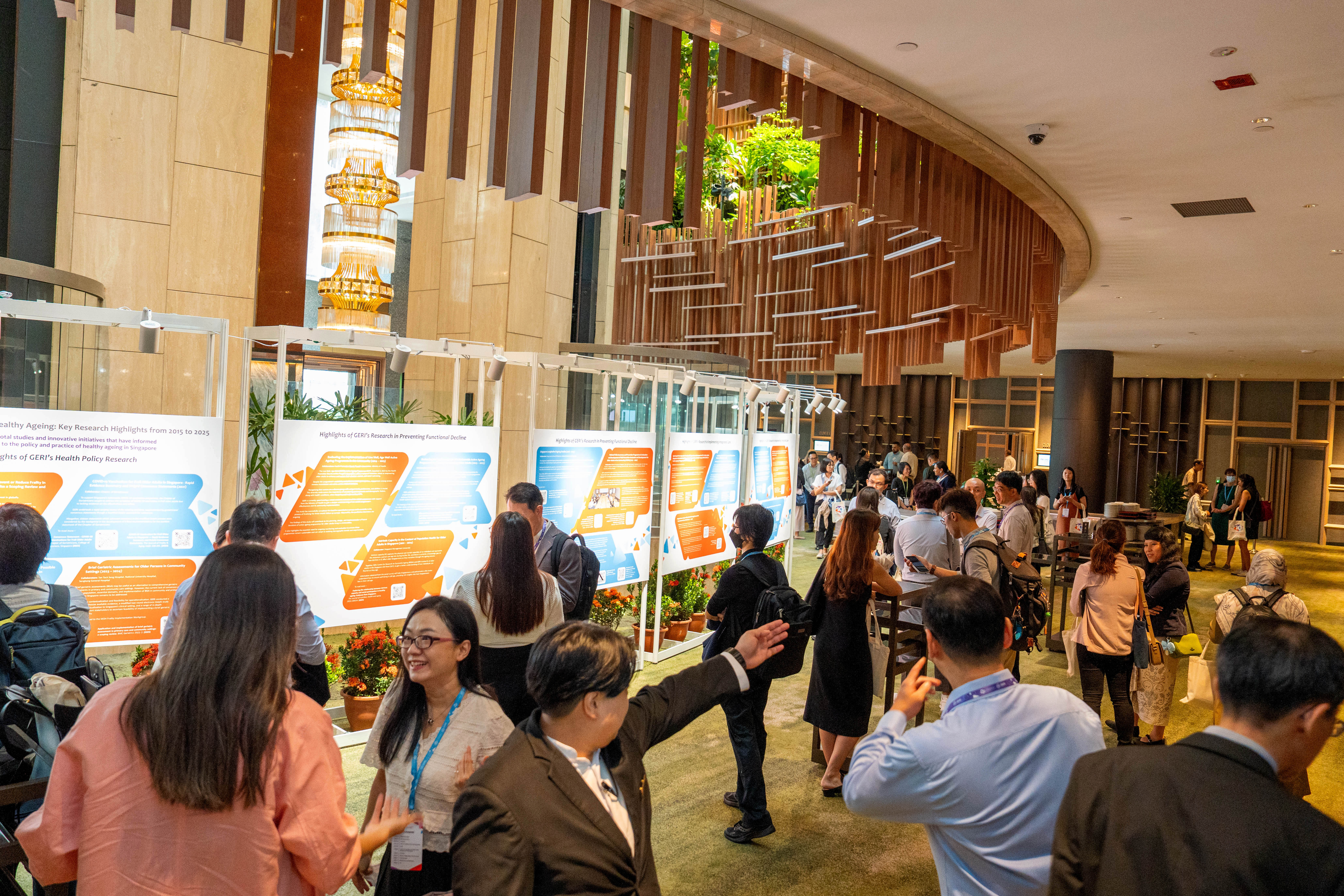
Over 250 thought leaders, policymakers, healthcare practitioners, community partners, and researchers gathered for insightful discussions and meaningful networking opportunities at the symposium, held at Parkroyal Collection Marina Bay on 8 July.
Themed “Translating Research for Healthy Ageing”, the symposium commemorated the Institute’s contributions towards health policies, systems and practice for Singapore’s older population since its inception ten years ago. Complementing the symposium, an exhibition showcasing GERI’s decade-long journey in healthy ageing research drew keen interest from attendees.
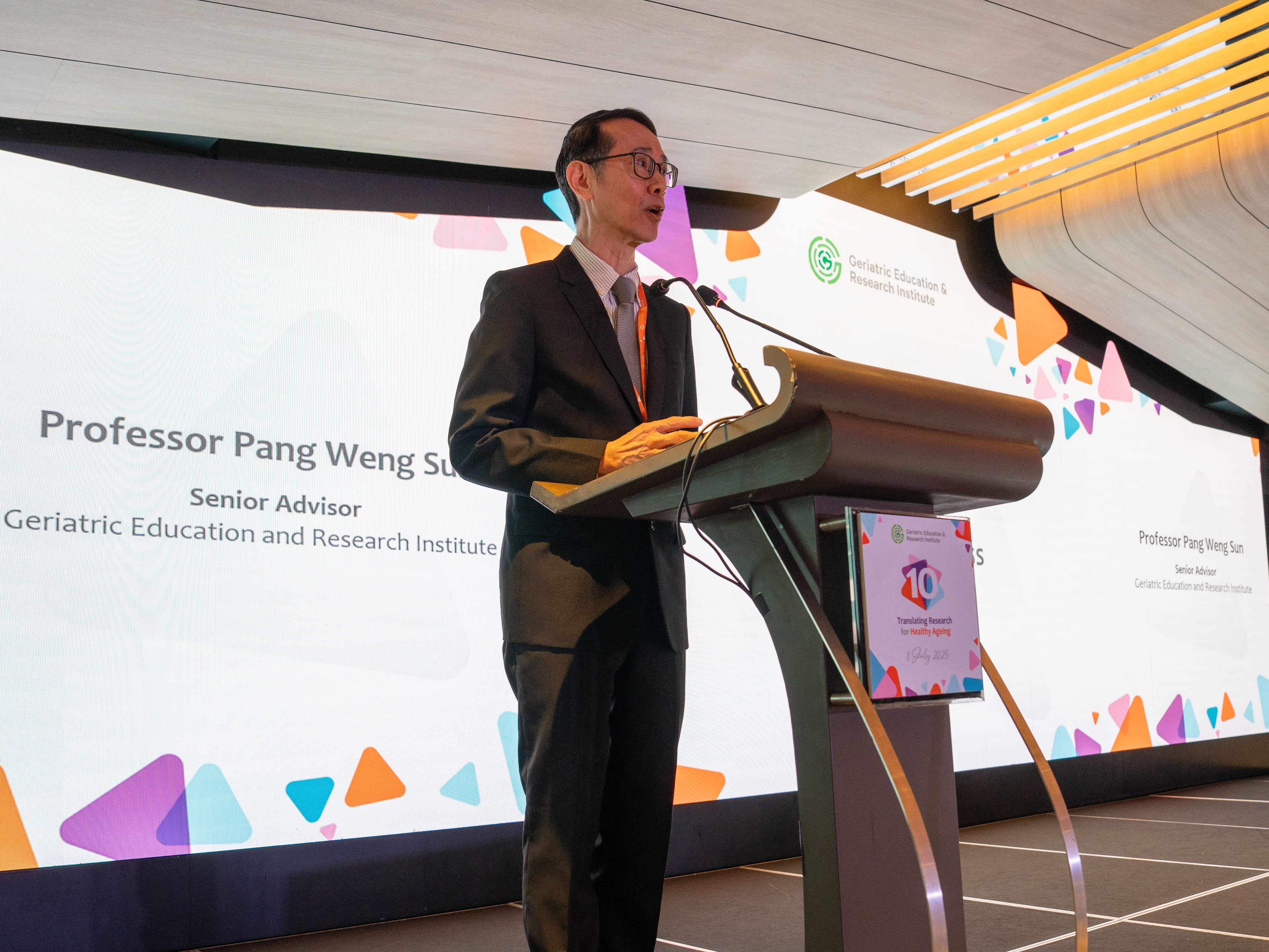
In his welcome address, Professor Pang Weng Sun, Senior Advisor, GERI, reflected on the Institute’s beginnings, and set the tone for the day by discussing the evolving challenges of Singapore’s ageing population—underscoring the need for continued collaborations with other research agencies and like-minded organisations to support care for an ageing population.
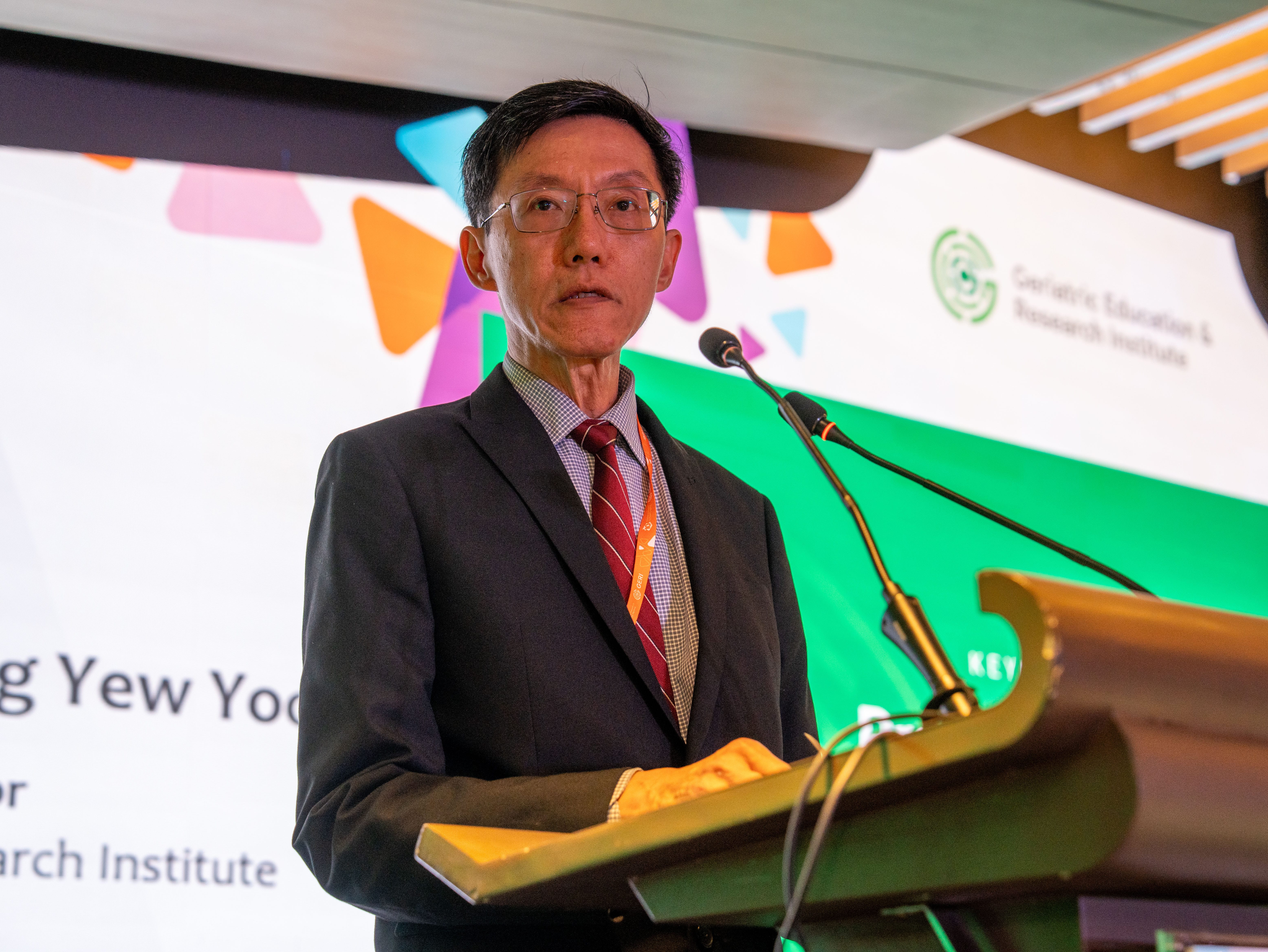
Echoing this call in his keynote speech, GERI’s Executive Director and Lead Scientist, Associate Professor Ding Yew Yoong, said: “GERI intends to deepen our contributions to future research in healthy ageing in Singapore. And such an endeavour is a concerted rather than a solitary one.”
This commitment, he added, is exemplified by the Institute’s signing of a Memorandum of Understanding with Canada’s Unity Health Toronto during the symposium, aimed at improving the health outcomes of older persons in Singapore by strengthening the translation of research insights into practical solutions.
Featuring a line-up of eminent speakers from Singapore and abroad, the symposium’s plenary sessions explored three key themes: evidence-informed policymaking, implementation research, and ageing well in the community.
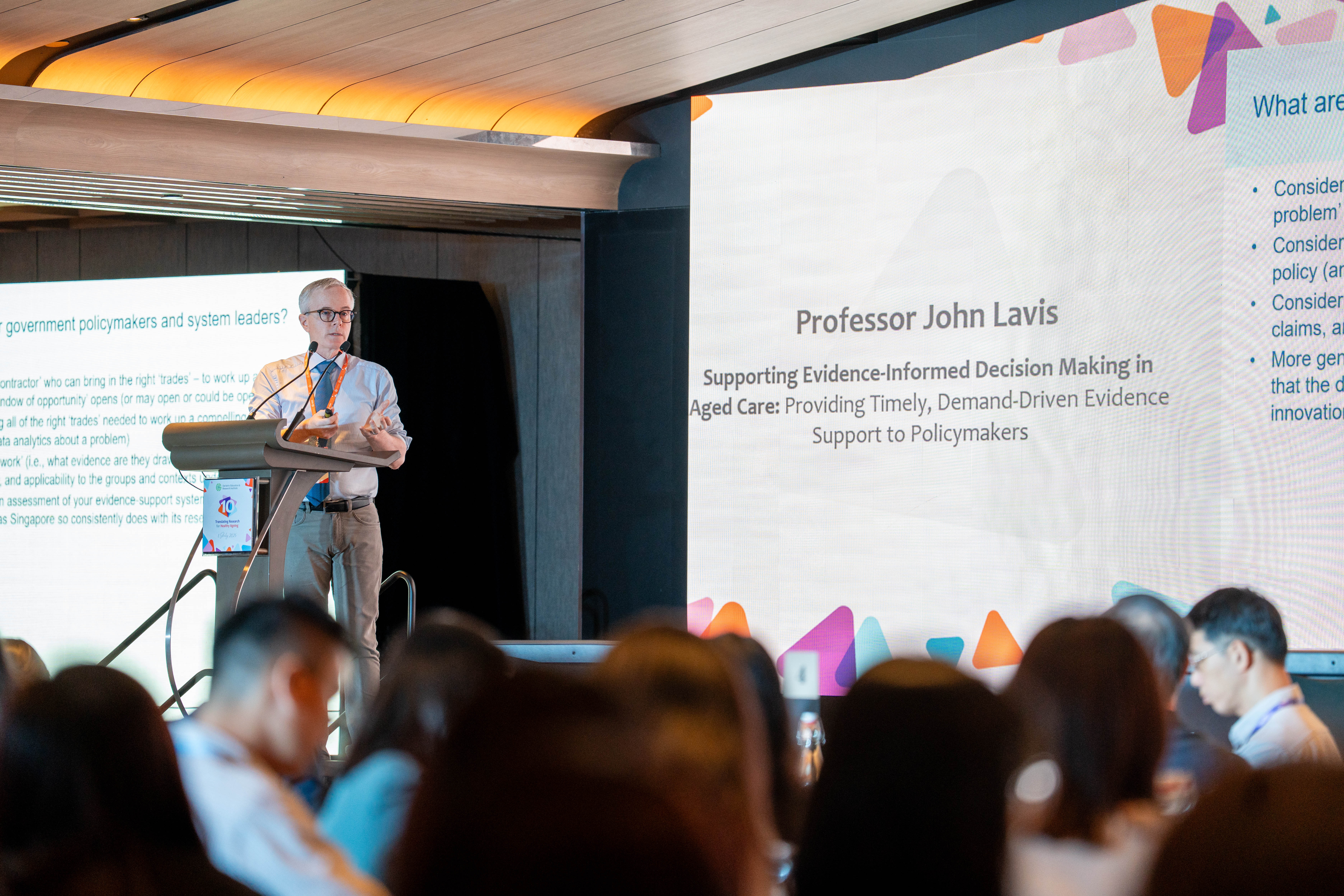
Professor John N. Lavis, Director, McMaster Health Forum and WHO Collaborating Centre for Evidence-informed Policy, drew attention to new developments in providing timely, demand-driven evidence support to policymakers in aged care, including ultra-rapid evidence support and rapid forms of primary research. He also highlighted recent developments in the global evidence architecture, particularly the Evidence Synthesis Infrastructure Collaborative.

Offering valuable insights on the issue of healthcare innovation sustainability, Professor Sharon E. Straus, Director of the Knowledge Translation Program; Executive Vice President, Clinical Programs and Chief Medical Officer, Unity Health Toronto, explored theories, models, and frameworks that inform sustainability research and guide how to plan for sustainability, and discussed key research gaps in the field of implementation science.
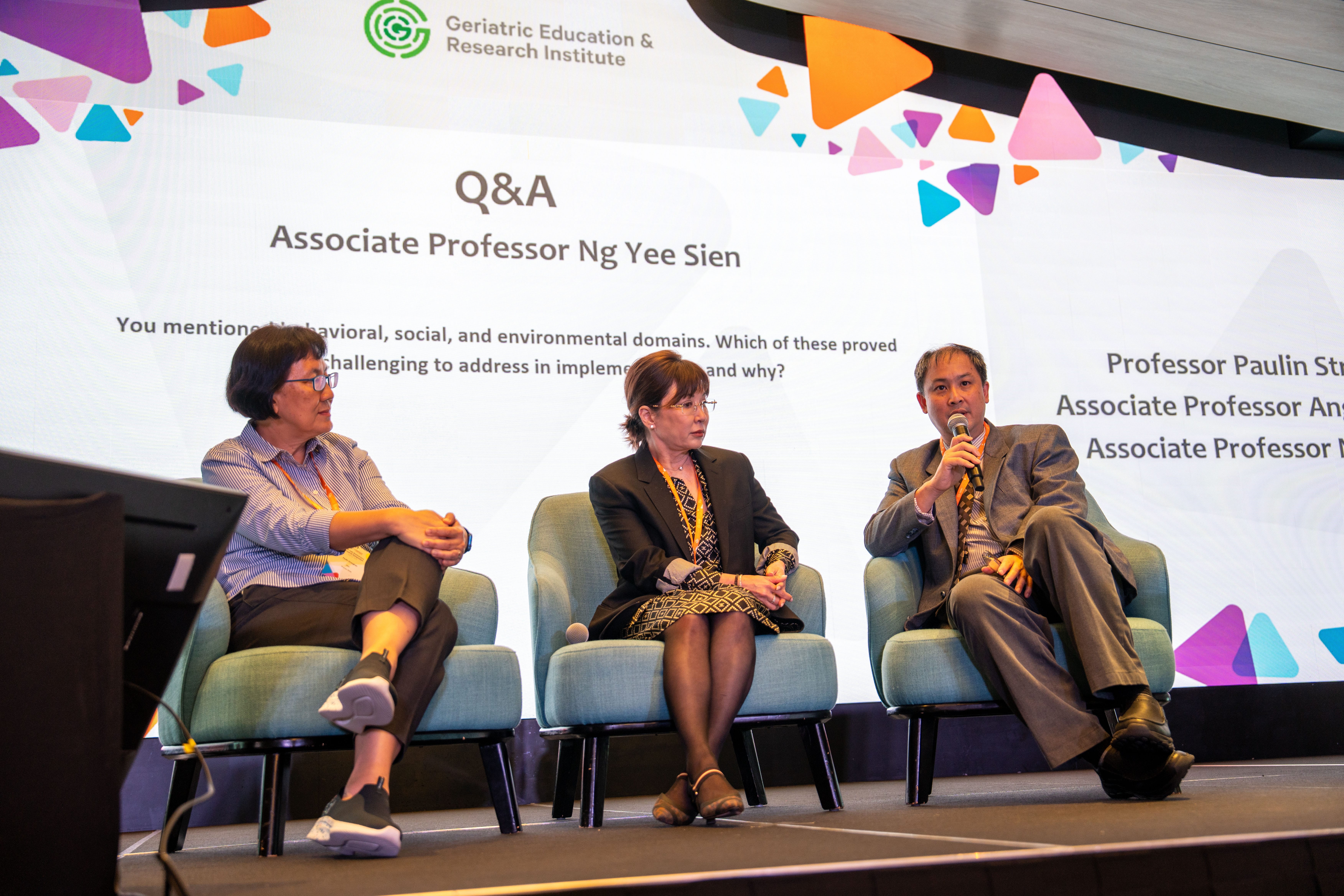
Other highlights of the symposium included plenary presentations by local clinician-scientists, leaders of aged-care research organisations, and GERI researchers.
Presenting findings examining how social and built environments shape older adults’ well-being through intrinsic capacity (IC), Professor Paulin Straughan, Director, Centre for Research on Successful Ageing (ROSA), Singapore Management University, noted that enhancing social support may be more scalable and cost-effective in improving IC compared to infrastructural improvements.
Associate Professor Angelique Chan, Senior Advisor, Centre for Ageing Research & Education, Duke-NUS Medical School, shared research on distinct profiles of met and unmet care needs among community-dwelling older adults with cognitive impairment in Singapore, and their association with caregiver burden and health-related quality of life.
Meanwhile, Associate Professor Ng Yee Sien, Lead Scientist, GERI, and Senior Consultant, Rehabilitation Medicine, Singapore General Hospital and Sengkang General Hospital, spoke about two community-based research platforms for physical activity and mobility, presenting their challenges, barriers, and facilitators through an implementation science lens—and how such platforms could be used to study population health issues such as frailty, sarcopenia and IC.
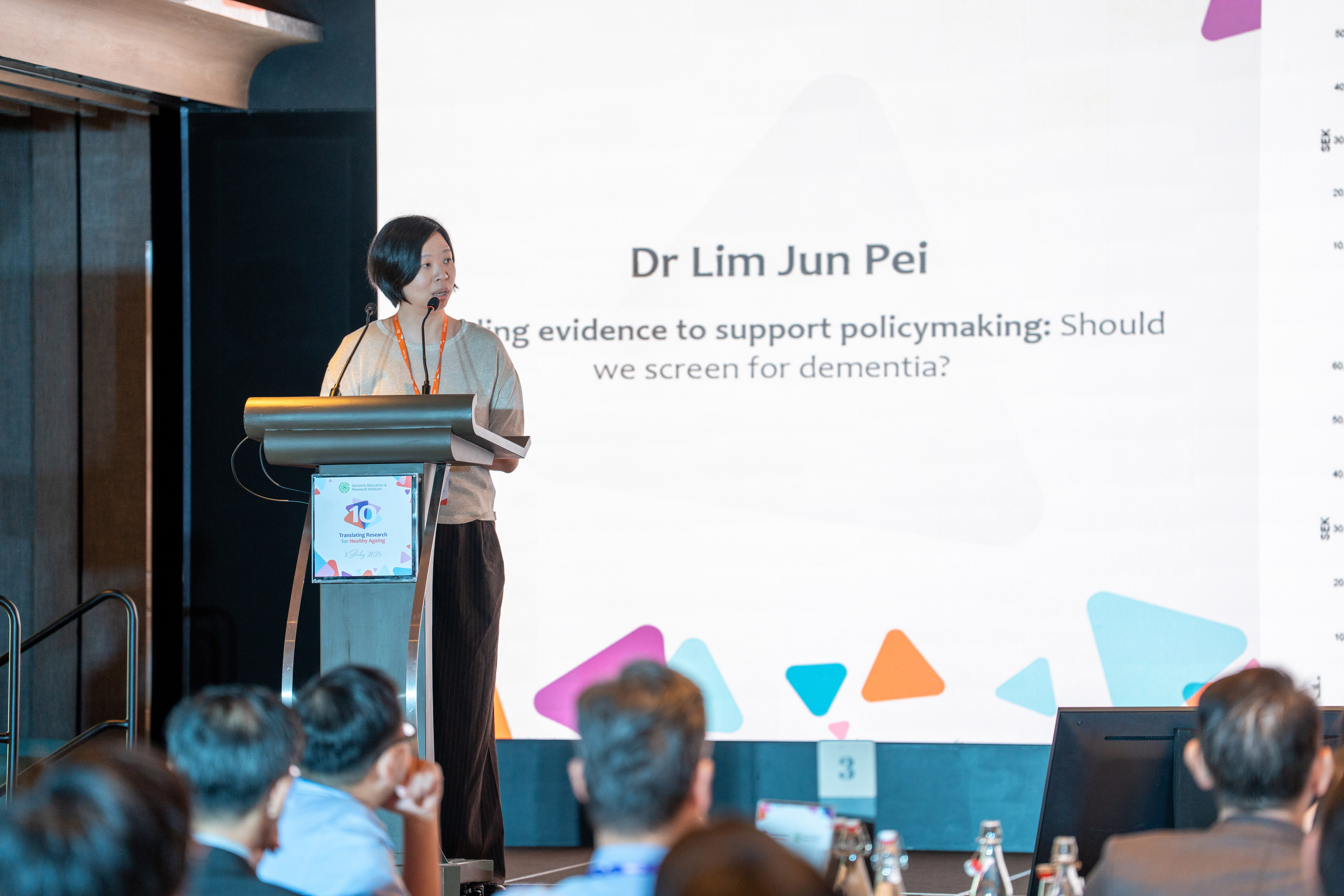
The value of rapid reviews, as an effective and relevant evidence synthesis methodology, in supporting policymaking was highlighted by Dr Lim Jun Pei, Senior Consultant, Geriatric Medicine, Tan Tock Seng Hospital, who offered insights from an evaluation of available dementia screening tools for Singapore’s ageing population and care ecosystem.
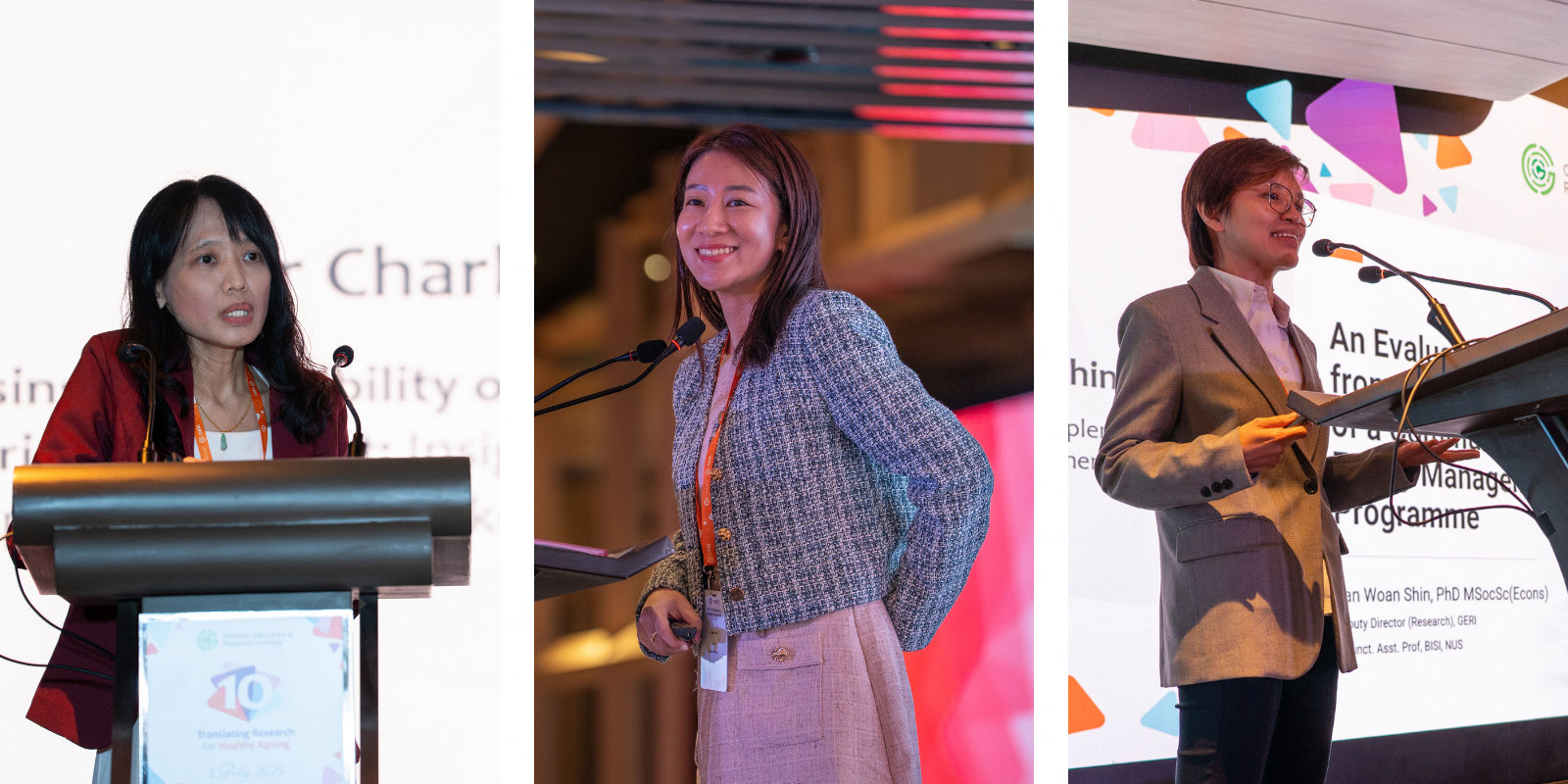
GERI researchers also presented findings from various collaborative projects that touched on topics such as frailty and IC. Senior Research Fellow Dr Charlene Lau discussed the feasibility of implementing a community-based brief geriatric assessment, while Research Fellow Dr Grace Sum presented insights on applying implementation research to translate national strategies into healthcare programmes—namely IMPACTFrail, INFINITY-ICOPE, and INFA—across different care settings. GERI’s Deputy Director of Research and Scientist Dr Tan Woan Shin offered an evaluator’s insights from the implementation of a community-based frailty management programme Geriatric Services Hub, highlighting key barriers and facilitators, as well as learnings for future interventions.
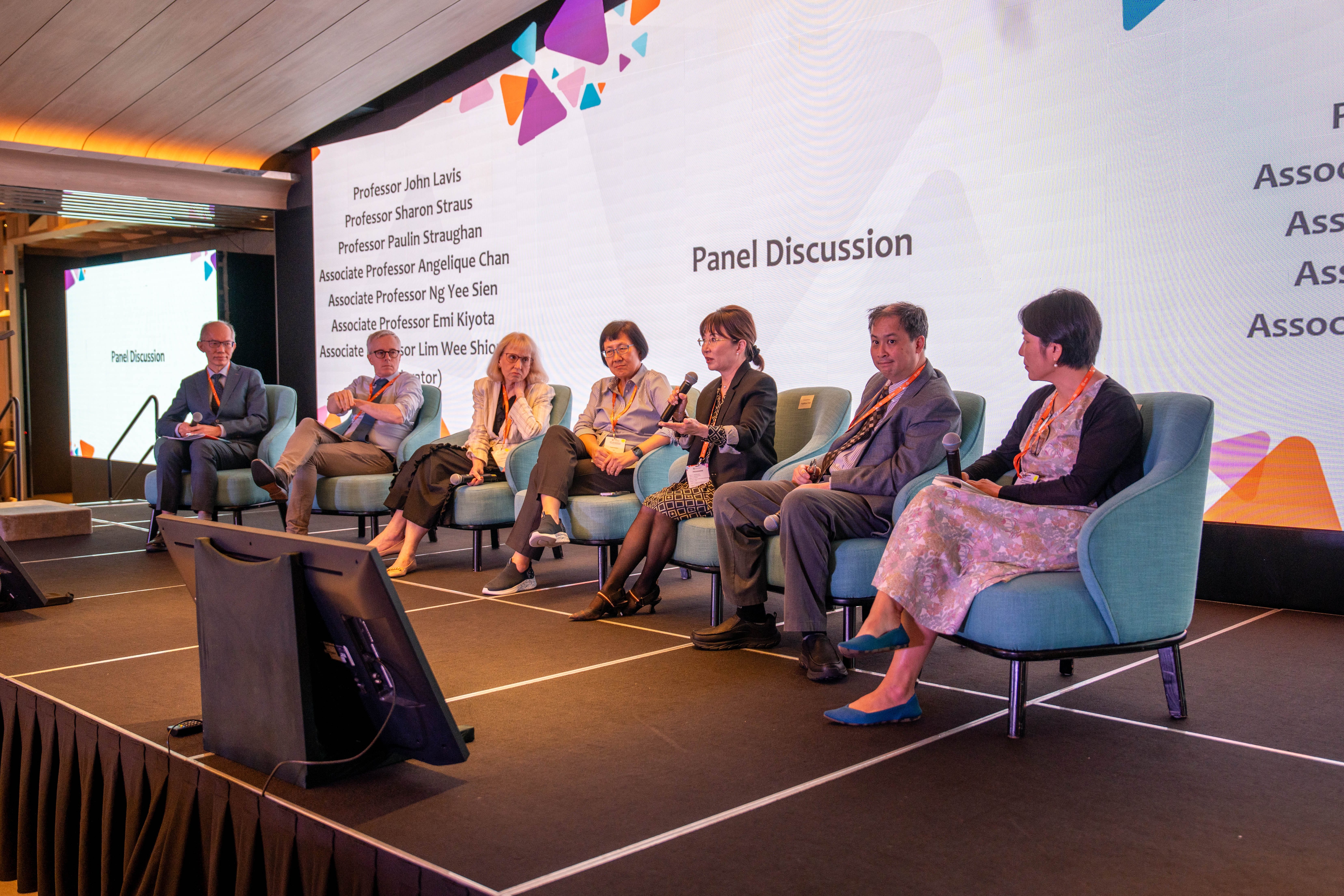
A thought-provoking panel discussion, exploring key aspects of interdisciplinary collaboration, concluded the symposium. The distinguished panel, comprising plenary speakers Professor Lavis, Professor Straus, Professor Straughan, Associate Professor Chan, Associate Professor Ng, was joined by eminent environmental gerontologist Associate Professor Emi Kiyota, Director, Centre for Environment and Ageing Well, College of Design and Engineering, National University of Singapore.
Moderated by Associate Professor Lim Wee Shiong, Lead Scientist, GERI; Director, Institute of Geriatrics and Active Ageing, and Senior Consultant at the Department of Geriatric Medicine, Tan Tock Seng Hospital, the panellists provided insights from their rich research experiences across different disciplines, discussed critical success factors for effective collaboration, and addressed challenges encountered in cross-disciplinary settings.
The panellists also offered nuanced perspectives on technology and artificial intelligence (AI). While technology can be a boon, as one panellist illustrated through a collaborative project using sensor-based devices to conduct gait speed tests for efficient community screening, the use of AI requires a more measured approach, particularly in ensuring safe and responsible implementation in healthcare and research settings.
Through these wide-ranging discussions, the panellists emphasised the continued importance of conducting impactful research that serves the needs of the health system and society.
Reflecting on the impact of both the symposium and the Institute in his closing address, Associate Professor Lim observed: “It is fitting that the meta-narratives that have emerged today—collaboration across siloes, integrative and interdisciplinary approaches, as well as closing the research-to-practice gap—have been consistent threads throughout GERI’s work these past 10 years.”
“Personally, I have been re-energised by the conversations and connections forged today, and I hope you have been too. It is not often that we get to see so many like-minded friends and colleagues gathered together.”
View the Virtual Exhibition and more photos from the GERI 10th Anniversary Research Symposium here.
